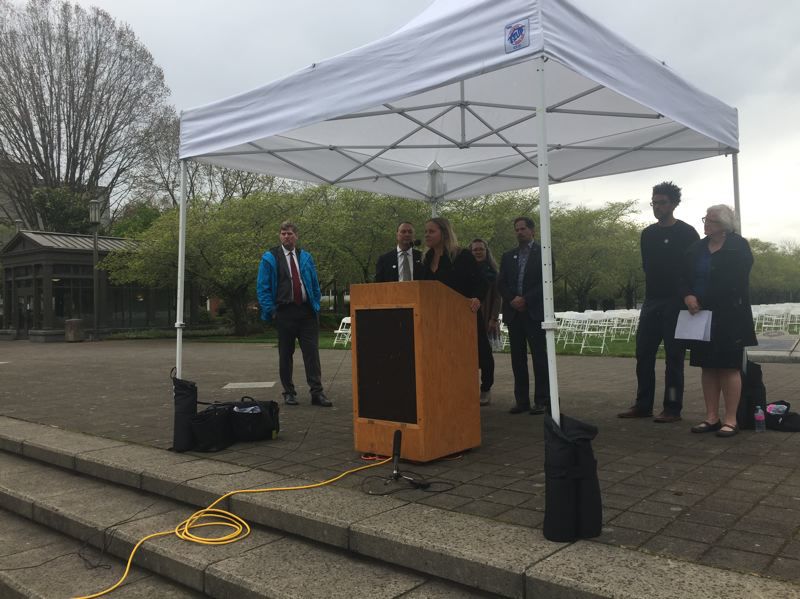Chairs on Capitol green represent lives lost to suicide
Published 8:00 am Wednesday, April 19, 2017

- PARIS ACHEN/CAPITAL BUREAU - Rene Mitchell of Bend speaks at a suicide prevention event at the Oregon Capitol in Salem Wednesday, April 19, 2017.
SALEM — As the people of Oklahoma City observed the 22nd anniversary of the bombing of the federal building that claimed 168 lives Wednesday, Oregon commemorated the loss of many more to suicide.
Seven hundred sixty-two white chairs stood empty on the Oregon Capitol green, representing the Oregonians who took their own lives in 2015.
As rain drifted down, lawmakers, advocates and loved ones of suicide victims urged Oregonians to seek help for mental health issues and abandon the stigmatization of depression.
“There is not one answer to this; it really belongs to everybody,” said Dr. Katrina Hedberg, state health officer. “For every one of these chairs, there is a story behind that, that involves all of us being involved in prevention.”
She encouraged reaching out to neighbors and building a sense of community, because social isolation is a risk factor for suicide.
Bend resident Rene Mitchell began sharing the story of her husband, Jason’s suicide to try to cast off the stigma she had felt was associated with it. She said she didn’t want her young daughters, who were 3 and 1 at the time of his death in 2010, to live with that stigma.
“We were all left asking a lot of questions, questions that could not be answered then and will never be answered,” Mitchell said. “…honestly, I was suffering from a great deal of shame, a great deal of guilt, manically asking myself the questions: What could I have done? Why didn’t I see signs? Is this my fault, and how will I ever survive this and raise my two daughters without the stigma of suicide?”
At least two bipartisan bills this legislative session address the problem of suicide by firearm.
House Bill 2526 by Rep. Knute Buehler, R-Bend, and Sen. Elizabeth Steiner Hayward, D-Beaverton, directs the Department of Justice to establish a firearm safety and suicide prevention education program and provide related education materials to gun dealers.
Another bill would provide a tool for families to block loved ones’ access to firearms if they posed a risk to themselves or others by creating an extreme risk protection order.
Republican Sen. Brian Boquist’s son, Seth Sprague, a 31-year-old U.S. Navy veteran, used a firearm to commit suicide Feb. 16, 2016. The tragedy spurred Boquist to work with Senate Majority Ginny Burdick, D-Portland, to design legislation that could help families intervene when a loved one threatens to take their own life. The bill is modeled after a measure voters approved last year in Washington.
Oregon has one of the highest suicide rates in the nation, including among veterans, Boquist said.





